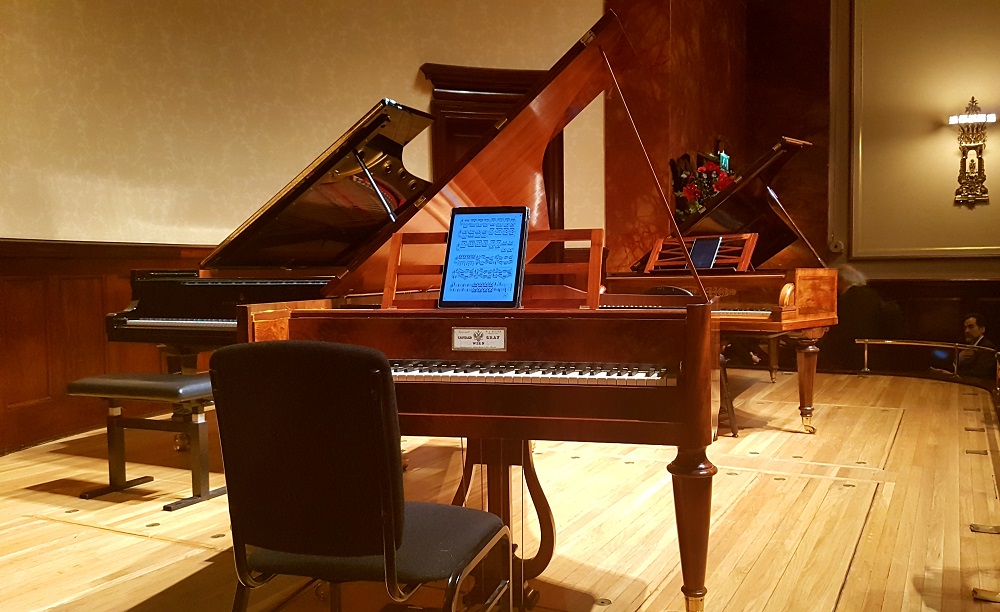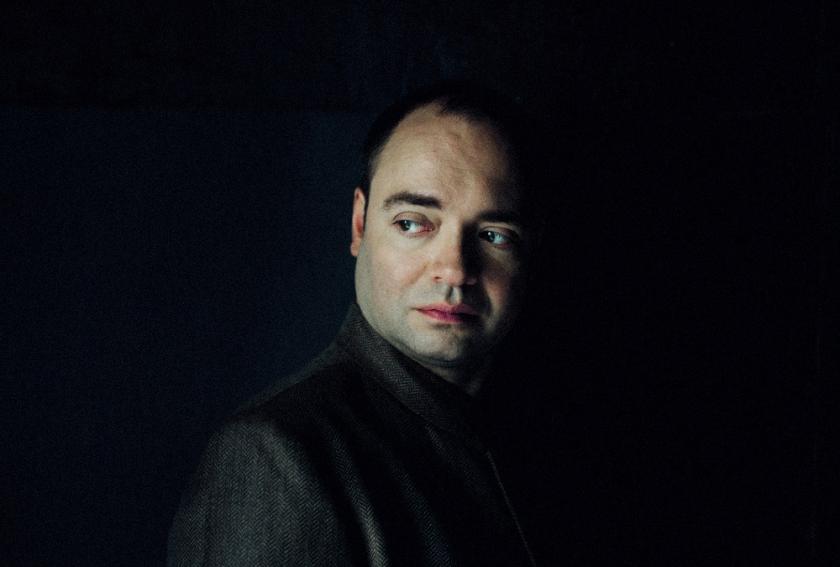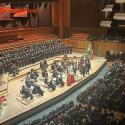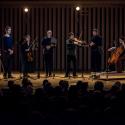Living-museum recitals on a variety of historic instruments pose logistical problems. Telling The Arts Desk about his award-nominated CD of mostly 19th-century works for horns and pianos, Alec Frank-Gemmill remarked on the near-impossibility of reproducing the experiment in the concert-hall: playing on four period horns would need several intervals, and colleague Alasdair Beatson would hardly be likely to have the four pianos in the same room. Last October came a breakthrough, for me at any rate: Roman Rabinovich playing on three pianos in the Cobbe Collection at Hatchlands, Surrey. Yesterday evening's very different trial from the adventurous Alexander Melnikov should have yielded equal insights.
Perhaps it did, but not in such a good way; there was nothing to match Rabinovich's revelation of Chopin Ballades on the composer's beloved Pleyel. Melnikov has proved something of a marathon man, excelling in both books of Debussy's Preludes on the Wigmore Hall's Steinway D back in April 2017. His sensitivities have been well proven in partnerships with great musicians like Isabelle Faust. Yet here he chose four daunting epics of the piano repertoire which would be unlikely to make a satisfying programme under any circumstances other than a supreme ease in making the difficult seem easy - the coolness of a Hamelin, for instance.
The limitations of a replica and an old instrument, however well maintained, in tackling such monsters only offered further obstacles (pictured below by David Thompson: Graf model in foreground, Erard behind, Steinway to the left). Surely Schubert, in composing the "Wanderer" Fantasy, was thinking of the full range of sonorities of a piano not yet invented (rather like Beethoven in the "Hammerklavier" Sonata). The copy of an 1824 Viennese Graf fortepiano, one of two instruments on loan from the Edwin Beunk Collection in the Netherlands, allowed for some crisp articulation, with a fresh spring to the opening summons, and Melnikov just about got round the difficulty of making a singing line from the treble in the central Adagio variations on the song which gives the work its soubriquet. But there was some surprising mud in the most virtuosic moments.  Was this just Melnikov pushing too hard on an instrument which seems to favour introspection, the sound tending to go inwards? He certainly gave some of Chopin's Op, 10 Études a hammering, and the move to an 1837 Erard from Paris - Chopin's preference for a "bad day", while he thought Pleyel always served him well on a good one - felt to me a bit like putting earplugs in halfway, with cowled sonorities other than at the very extremes of the keyboard.
Was this just Melnikov pushing too hard on an instrument which seems to favour introspection, the sound tending to go inwards? He certainly gave some of Chopin's Op, 10 Études a hammering, and the move to an 1837 Erard from Paris - Chopin's preference for a "bad day", while he thought Pleyel always served him well on a good one - felt to me a bit like putting earplugs in halfway, with cowled sonorities other than at the very extremes of the keyboard.
That meant the champagne bubbles of the more extrovert Études never quite rose to the surface. And, ma foi, was Melnikov fast. Usually he gives just enough articulation and breathing space to speedier tempi, but there still weren't quite enough as one tried to adjust to the usually radiant E major Lento ma non troppo at a pushed Andante. The central juggernaut threatening destruction certainly sounded novel. So did the cascades of the more brilliant Études, delivered at what may have been a record velocity, and at least the "Revolutionary" clincher, No. 12 in C minor, had space and proper contour.
Even so, this never felt comfortable in a good way for long, and while Liszt's Réminiscences de Don Juan after the interval - also on the Erard - started majestically with a thunderous treatment of Mozart's statue music and sparkled in the first few variations on "La ci darem", the rushing soon became too approximate for comfort.
By now we were feeling the need for a poetic breather, but the fireworks just kept going off in the first and third of Stravinsky's Three Movements from Petrushka (potentially a good companion, the final tableau borrowing from Russian street tunes just as Liszt takes several of Mozart's most popular melodies). Big bass richness in something the Steinway does best amplified the whole picture, but in his interesting observations during a pre-concert event, Melnikov pointed out that Steinways were geared towards big names like Rachmaninov playing in big halls, and possibly not ideal for a venue like the Wigmore (note - over at St John's Smith Square, Anna Fedorova was demonstrating the possibilities of the much under-used Blüthner grand).
So we felt hammered, with a smattering of approximate hits. The Chopin encore brought balm, but what a shame there hadn;t been more of that throughout a programme of way too many notes. Melnikov, an honest fellow, expressed possible misgivings in the talk about what he was about to attempt. He will probably accept now that the experiment didn't quite come off, adjusting for the future accordingly.















Add comment